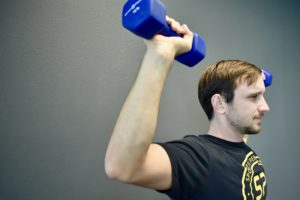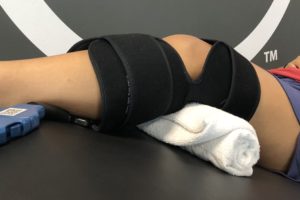
The Open is here! How well are you recovering between your attempts? What can you be doing to recover harder so that you can keep hitting your workouts hard?
Check out our 5 recovery strategies below!
1. Breathwork
Taking 5-10 minutes per day to focus on your breathing can help bring your heart rate and blood pressure down and transition your body into recovery mode. Any breath work practice will suffice, whether you choose yoga, meditation, diaphragmatic breathing, or tai chi breathing. Hyperventilation after a WOD doesn’t count…
Taking 5-10 minutes per day to focus on your breathing can help bring your heart rate and blood pressure down and transition your body into recovery mode. Hyperventilation after a WOD doesn’t count…
2. Active Movement/Mobility
One of the best things you can do is to keep moving as much as you can. Movement not only keeps your muscles loosened up, but it also helps you improve circulation and brings nutrients to your stressed tissues. Take a walk, get on the Assault Bike for a SLOW 15 minutes, move through a yoga flow, go for a swim, move around on your foam roller or lacrosse ball, or just work on some mobility. Your body will thank you and you’ll go into the next workout fresh.
3. NormaTec Compression
You’ve seen it our instagram: the big compression pants and uber-relaxing chair! The NormaTec Recovery system provides pulsed compression to your limbs to push old blood flow out and allow new nutrients in. Compression also helps relax sore muscles and speed your recovery.
4. Soft Tissue Work
You’re undoubtedly going to feel beat up, tired, and achy at some point over the next few weeks. One way to prevent this fatigue from building up and resulting in tightness/injury is to focus extra time on your muscular and tendinous health. Soft tissue work can be a great way to do this. Whether you choose to see a physical therapist or massage therapist, get on a foam roller, or convince your significant other to give you a rub, keeping your body tuned up and mobile feels great and improves recovery.
5. Sleep Hard
The Open is a stressful time for our minds and bodies. The mental stress of competing is added to the physical stress of max effort workouts. Conveniently, our bodies are equipped to respond to stress by adapting and producing resilience against future similar stressors. Sleep is crucial for this process to happen.
As always, we hope this helps! If you have any questions or if you would like to read about certain topics, feel free to send us an email at TeamSP@SportsPerformancePT.com.
-Dr. Marissa Rescott, PT, DPT, CF-L1

STAY CONNECTED
Instagram: CLICK HERE
Facebook: CLICK HERE
YouTube: CLICK HERE
Podcast: CLICK HERE
Online Store: CLICK HERE
TUNE IN TO OUR PODCAST














